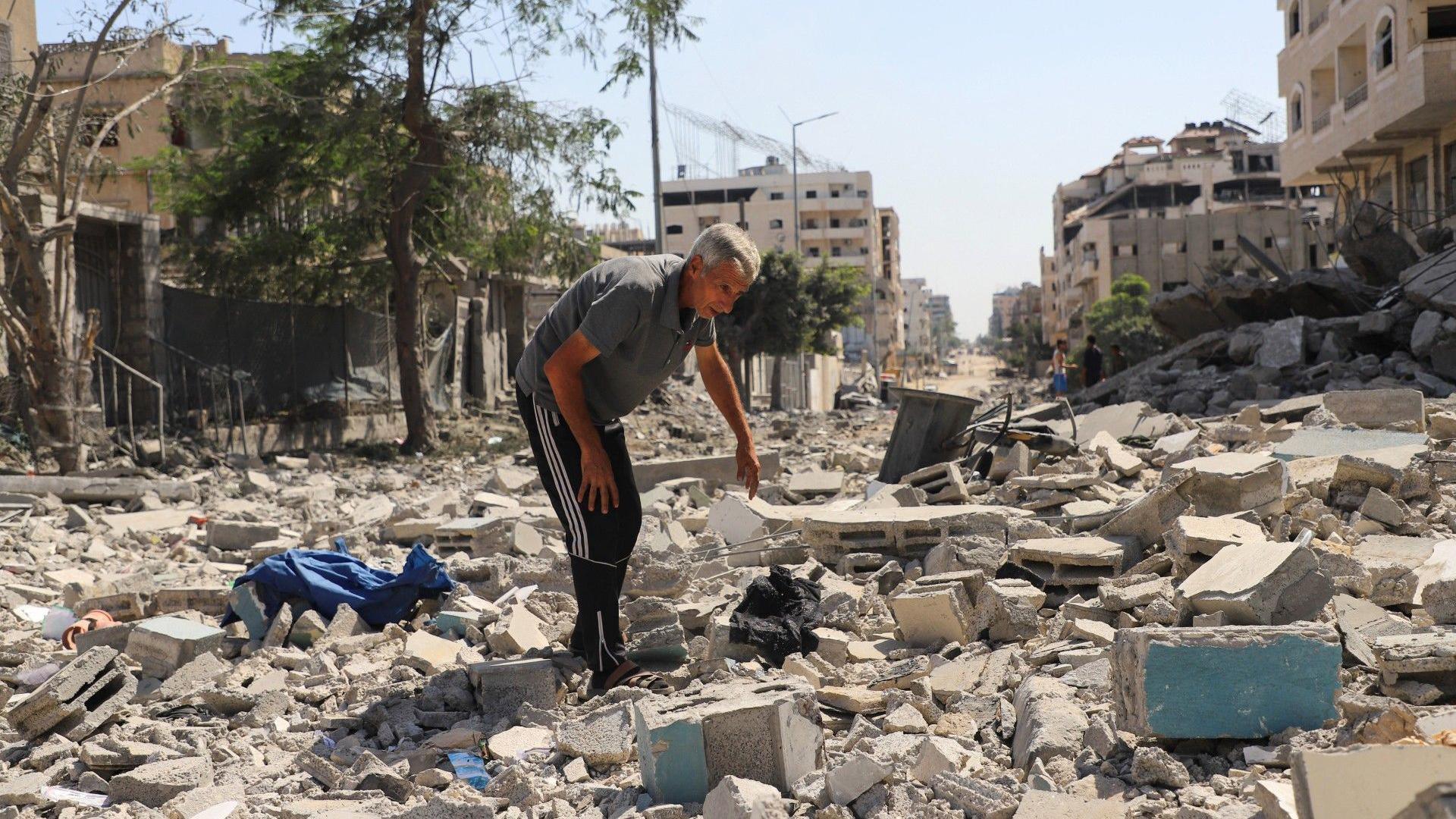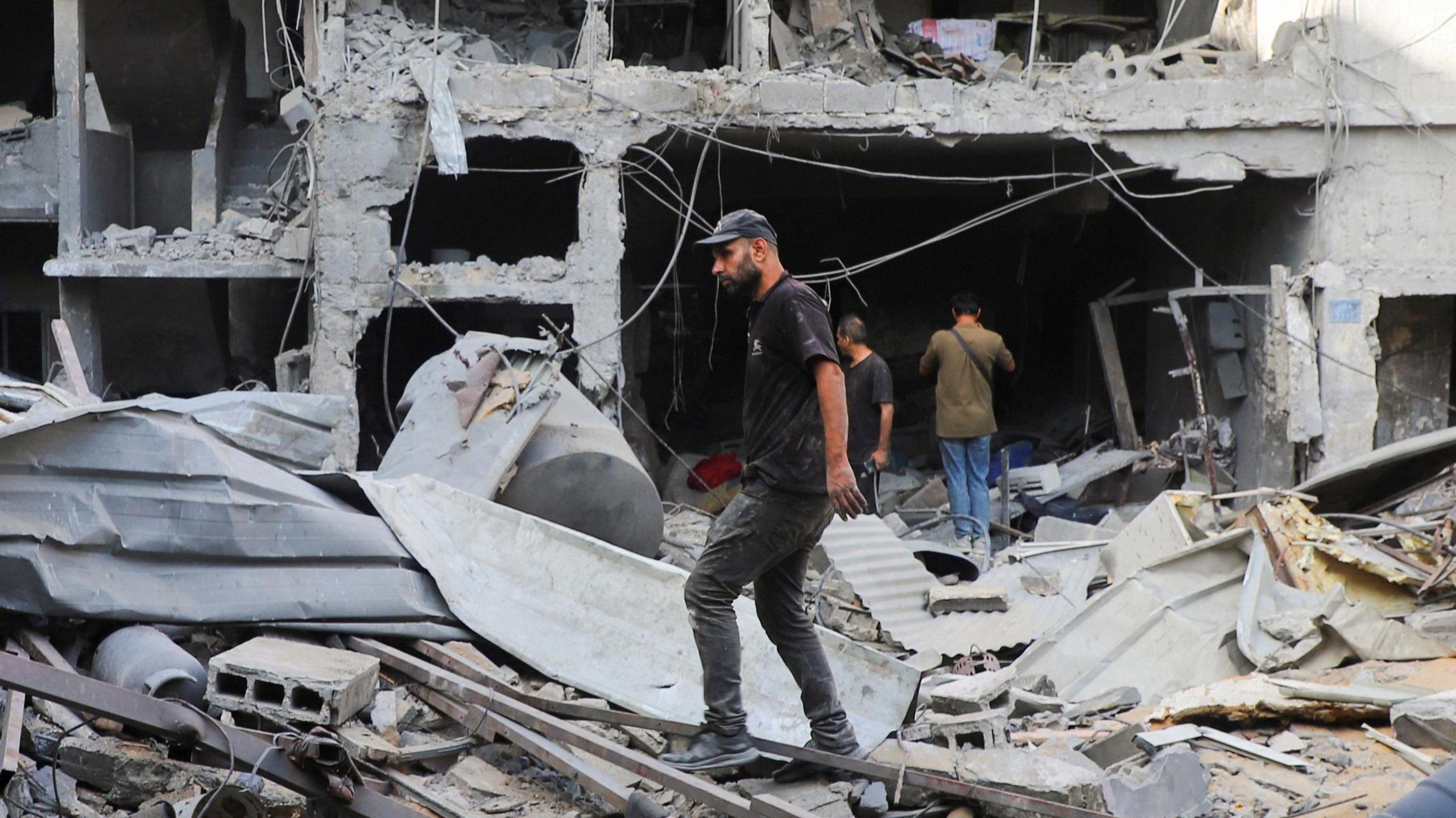Scots activists on Gaza aid flotilla released from Israeli prison
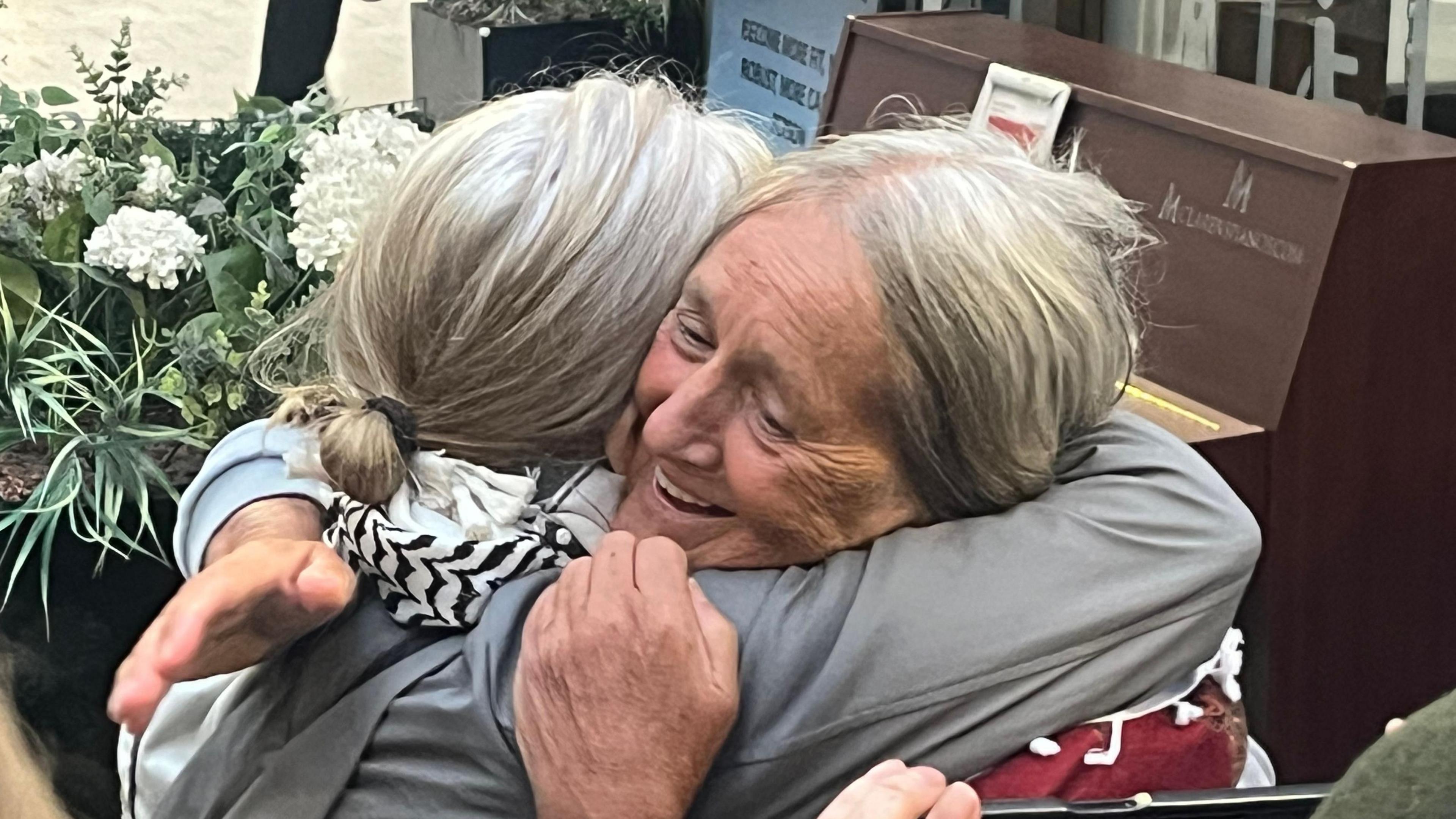
Margaret Pacetta says she is relieved to be home but still feels sad for the people of Gaza
- Published
A group of Scottish activists have been released after being detained by Israel as part of a flotilla of aid to Gaza.
Margaret Pacetta, 71, returned to Glasgow on Monday, while Yvonne Ridley, 67, Jim Hickey, 52, and Sid Khan, 48, are now in Jordan.
The group were taken into captivity when their boats were intercepted by the Israeli military last week, alongside other vessels in the Global Sumud Flotilla (GSF).
Ms Pacetta told BBC Scotland News her spirits were still good, despite being held in prison where she claims she was mistreated by the guards and denied basic human rights.
"They're never going to break our spirits, never," she added.
Watch: Moment Israeli navy intercepts activist boats carrying aid to Gaza
She said that when her boat was intercepted, the Israeli forces kept circling it, causing waves and making their boat rock.
"Then they just kept saying 'everyone put your hands up'," she said. "That's the first thing we are taught to do as peaceful, non-violent activists."
Ms Pacetta claimed the Israeli soldiers pointed guns at them and shouted: "Do not move or we'll shoot."
She added: "It was pretty scary to be honest with you."
Ms Pacetta's boat and its occupants were temporarily left by the soldiers as there were not enough men to take the whole flotilla - with the Israelis saying they would be back the next day with lawyers for them.
"As soon as they disappeared we went straight to Gaza," Ms Pacetta said.
Scots on intercepted Gaza aid flotilla detained in Israel
- Published2 October
Israel deports Greta Thunberg and 170 other Gaza flotilla activists
- Published6 October
In preparation for being intercepted, she said the group had tanks full of food items, including pasta, rice and dates, which they threw into the sea.
"The people in Gaza got them," she said. "They actually got them, because people in Gaza were watching our ship.
"They went out with their fishing nets and when they brought them in they had all our things on them."
She described being held by the Israelis as "absolutely horrific".
Israel has rejected as "fake news" accusations that the activists were mistreated and denied basic rights while in detention.
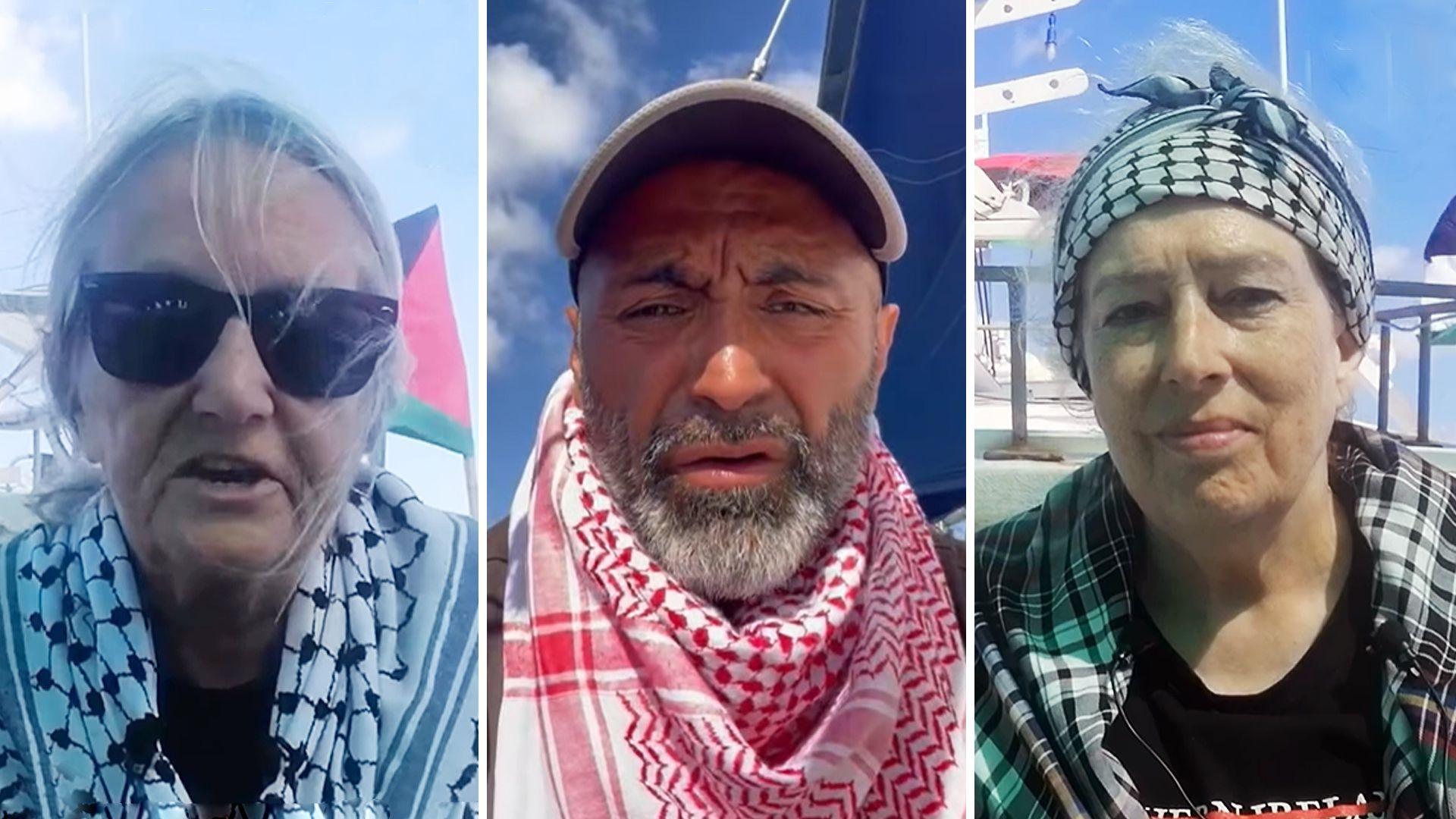
Margaret Pacetta, Sid Khan and Yvonne Ridley were on boats sailing as part of the flotilla
Ms Pacetta told the BBC she was relieved to be home and back with her husband and family.
"Obviously it's great to be back - that was six and a half weeks that I've not seen my husband, daughter and grandaughter," she said.
"I'm feeling sad for the people in Gaza. That's the main thing in my mind. And I'm upset. We were so near when they took us over."
Ms Pacetta's husband John said he had been through a sleepless few weeks.
"I'm feeling relieved now that she's home," he said. "I'll get a good sleep tonight that's for sure. Really glad to get her home."
'Crying like a baby'
Isma Khan, the wife of Sid Khan, said she received a call from the British embassy at around 09:00 on Tuesday saying that her husband had been freed along with the other British citizens who had been in Israeli custody.
"I was crying like a baby, I was howling it out," she said. "It was just relief to know that they were all OK."
She added that, in a clip posted on social media, Mr Khan appeared to have lost a lot of weight, but overall he seemed positive.
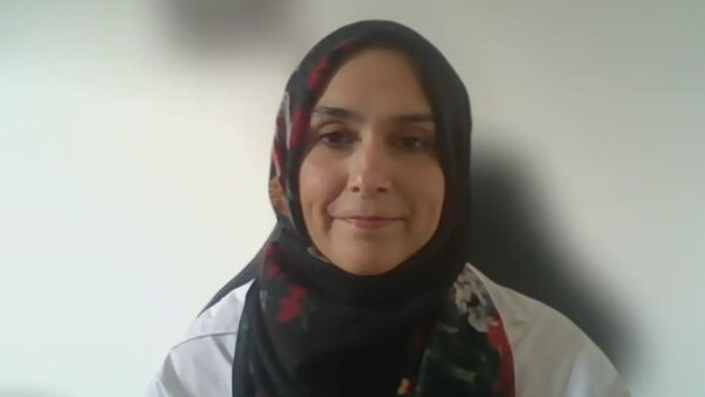
Isma Khan has had confirmation that her husband Sid is now in Jordan
She added that she was waiting for confirmation from the British embassy on how the group would return to the UK, but there had been a conversation about possibly flying into London on Wednesday.
A Foreign Office spokesperson said: "We are supporting a number of British nationals who have now left Israel."
On Monday, more than 170 other activists were deported by Israel.
So far, the ministry has announced the deportations of 341 of the 479 people who were on board the 42 boats in the flotilla.
The 138 other activists remain in detention in Israel. More than 40 were confirmed to be on hunger strike on Sunday, according to the GSF.
The GSF's boats set sail from Barcelona at the end of last month after experts from the UN-backed Integrated Food Security Phase Classification (IPC) confirmed there was a famine in Gaza City, and warned that it could spread to central and southern Gaza within weeks.
Gaza's Hamas-run health ministry has said at least 460 Palestinians have died from the effects of malnutrition since the start of the war, including 182 since the famine declaration.
The UN has called on Israel to urgently lift the blockade on Gaza and allow the entry of life-saving material through all means possible.
Israel has insisted it acts in accordance with international law and facilitates the entry of aid.
It has also disputed the IPC's findings and the health ministry's figures, and strongly denied the allegation - most recently made by a UN commission of inquiry - that its forces have committed genocide against Palestinians in Gaza.
The Israeli military launched a campaign in Gaza in response to the Hamas-led attack on southern Israel on 7 October 2023, in which about 1,200 people were killed and 251 others were taken hostage.
At least 67,160 people have been killed in Israeli attacks in Gaza since then, according to the territory's health ministry.
